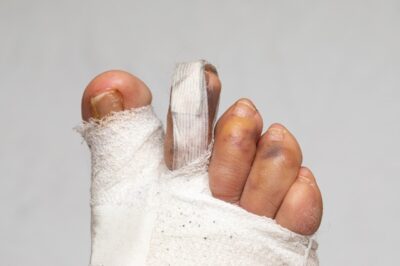A glance around your office can help you identify just how many of your colleagues haven’t had a good night’s sleep in ages. Unfortunately, no amount of concealer can help in covering up the grogginess that comes with the lack of better sleep hygiene. Healthy sleeping habits significantly impact your mental and physical health, affecting your efficacy and work ethic.
Inconsistent nightly routines, difficulty falling asleep, and dependency on medicinal drugs to induce sleep are some of the most common symptoms of bad sleep hygiene. While turning to prescribed medicine is inevitable if your lack of better sleep is taking over your life, there are still alternatives to seek.
Visit Here: grounding sheets
1. Natural remedies over drugs:
Prescribed drugs such as Ambien help you fall asleep without the anxiety of tossing and turning in your sheets. However, the effects of such a medicinal drug can overshadow other areas of your day-to-day life adversely. People who regularly consume Ambien can often be seen struggling with withdrawal, which can cause more anxiety, disorientation, fatigue, and insomnia. While consulting a doctor is always best to help with Ambien addiction , you can always find helpful resources online to get started.
Chamomile is often consumed as a tea or in its essential oil form to help induce sleep. It is a known sleep-inducing herb; however, the effects are relatively mild and harmless in the long run. While this may not have the same quick-release effect as Ambien, it has reportedly helped people who have had difficulty falling asleep. Chamomile tea can also replace your hot cup of brewing caffeine and be part of your nighttime routine.
Essential oils have been a part of well-being forever, lavender oil being one of the most famed ones. Lavender, as an essential oil, is often used in aromatherapy due to its relaxing and mildly sedative qualities. Using it in your warm bath before bed or spraying a light mist in your bedroom can help you de-stress and fall asleep more easily.
2. Set a routine:
Establishing a set time for getting in and out of bed can be one of the biggest changes that affect your lifestyle. A set sleep-wake cycle enforces your body to fall into a better sleep pattern. The key is to stick to the routine throughout the week and not give in to the warmth of your bed on weekends, no matter how tempting that may be. By altering your sleep schedule on weekends, you risk waking up groggy for work or school on Monday.
A sleep routine can entail more than just setting a schedule for your bedtime. Nightly rituals can help significantly in tricking your body into falling asleep. For instance, doing your 10-step Korean skincare routine or reading a book right before getting into bed can be part of your ritual that eventually lulls you to better sleep. Starting a routine for your bedtime is similar to how your parents might have tucked you in bed with a story or a lullaby.
3. Taking shorter naps:
Sleeping right after school or during your break at work is an understandable need. However, napping for too long may impact your nighttime better sleep, which is ultimately more important for a healthy body. Cutting your naps short or taking power naps is more beneficial than sleeping for longer hours during the daytime.
Most people recommend 20 minutes of better sleep to be sufficient for reawakening your senses during the day. It is also essential to know when the right time to nap is. Taking naps too close to your bedtime at night will throw you off your nighttime schedule.
4. Keep a check on what you consume:
Stimulants like caffeine are taken in relatively large doses by many people across the globe in the form of tea, cola, and coffee. While these drinks certainly grant you a boost of energy, they do affect how well you can better sleep at night. Caffeine-rich beverages should be avoided during later hours of the day if you want restful better sleep during the night.
Heavy meals, especially when consumed later in the evening, can cause distress, making it difficult to fall asleep. In addition, eating sugary foods may give your body unwanted energy in the middle of the night.
If you suffer from gastro issues, you should consider cutting down on spicy foods that can cause discomfort when lying down. Make sure you do not lie down as soon as you’ve had your supper. Taking a stroll, meditating, or participating in a nighttime ritual can give your body enough time to digest the meal before you get settled into your cozy bed.
5. Elevate your bedroom environment:
Loud noises from the street, flickering lights, and pesky little bugs can all seem very annoying, especially when counting sheep to summon sleep. Sometimes, the room may feel too warm or cold for you to be comfortably asleep. All of these factors account for how well you can better sleep in an environment that is not optimal. Luckily for you, most of these require an easy fix.
Darker, thicker curtains can cut down most of the light from entering your room which can help you fall asleep quicker. Minimizing unwanted noise from devices around the room may help too. Finally, setting your air conditioning unit to a temperature of your satisfaction can aid in a peaceful night’s sleep.
6. Wind down:
For most people, shutting down the relentless thoughts that run through their minds as soon as they hit the covers is the hardest to tackle. The brain might be a tad bit too active than we would like it to be at a late hour of the night. Everyone handles this situation differently since there isn’t exactly a one-size-fits-all solution at hand. However, avoiding screens right before bedtime can immensely help you relax. Cutting down on screen time is necessary since the blue light emissions significantly impact your sleep hormone, melatonin.
Exercising and meditating work for a lot of people who wish for nothing more than a decent amount of peaceful sleep. Gentle stretching and lighter workouts in the evening can help promote better sleep. Some people may simply rely on relaxing their muscles while already in bed.
Conclusion:
Going a few days without a considerate amount of sleep can horribly impact your days. Falling asleep during classes or important meetings indicates that you must consider your better sleep debt situation. The bottom line is that your sleep determines how well your days go. If none of the above-mentioned tips work out for you, it may be wise to visit your doctor to rule out the possibility of a sleep disorder.










